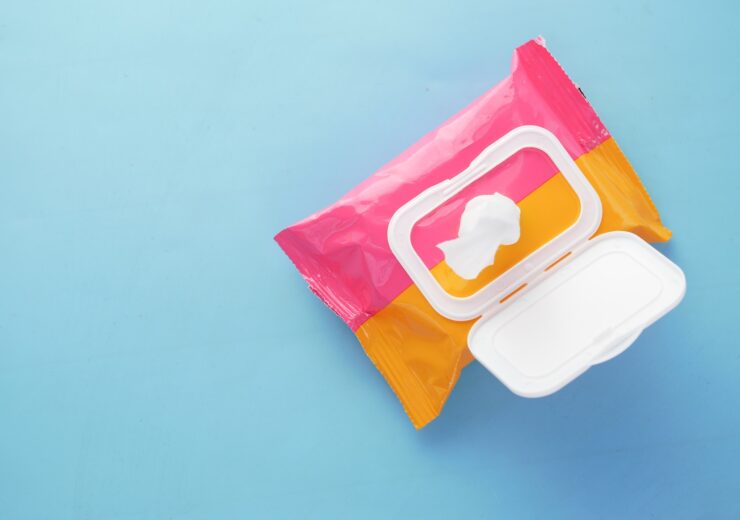Part of the UK government’s Plan for Water, the proposed ban is expected to stop plastic pollution in the marine environment and lower microplastics entering wastewater treatment plants

UK government plans to ban plastic wet wipes. (Credit: Towfiqu barbhuiya on Unsplash)
The UK government has launched a nationwide consultation to ban wet wipes containing plastic to combat plastic and microplastic pollution and clean up the waterways.
Part of the UK government’s Plan for Water, the proposed ban is expected to stop plastic pollution in the marine environment and lower microplastics entering wastewater treatment plants.
The consultation started on 14 October and will continue for six weeks till 25 November.
It is part of the government’s ongoing attempts to ensure that there is more investment, stronger regulation, and robust enforcement across the water system to improve the quality of water.
According to the UK government, banning plastic wet wipes will lower the volume of microplastics entering wastewater treatment plants when flushed incorrectly.
Water UK chief executive David Henderson said: “We welcome the Government’s plan to ban plastics from wet wipes. When flushed, these wipes cause fatbergs and other blockages that trigger overflow spills into rivers or flood homes and businesses.
“As our Bin the Wipe campaign makes clear, these products should never be flushed. We can all do our bit by putting wet wipes in the bin, rather than flushing them.”
Wet wipes without plastic are already an option, with several well-known brands doing away with the material.
Wet wipes containing plastic are no longer available at major supermarkets like Boots, Tesco and Aldi.
The ban would build on merchants’ decision to limit consumer access to wet wipes made without plastic.
The plans have been set out in a joint consultation with the devolved administrations that was launched today to get opinions on a UK-wide ban on the production, distribution, and sale of wet wipes with plastic.
It acknowledges appeals from the public for action to stop plastic from polluting waterways as well as strong public support for the proposed ban.
Additionally, it is a part of the government’s larger, globally recognised initiative to combat plastic pollution and get rid of all avoidable plastic trash by 2042.
